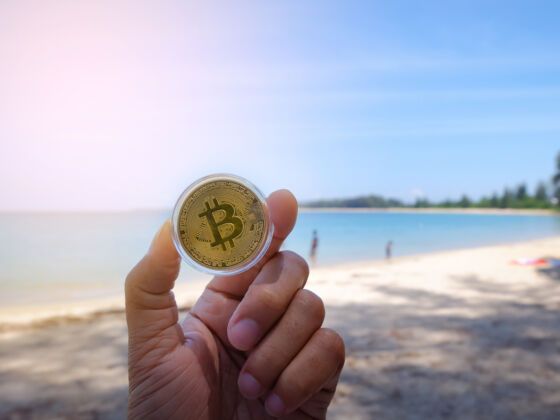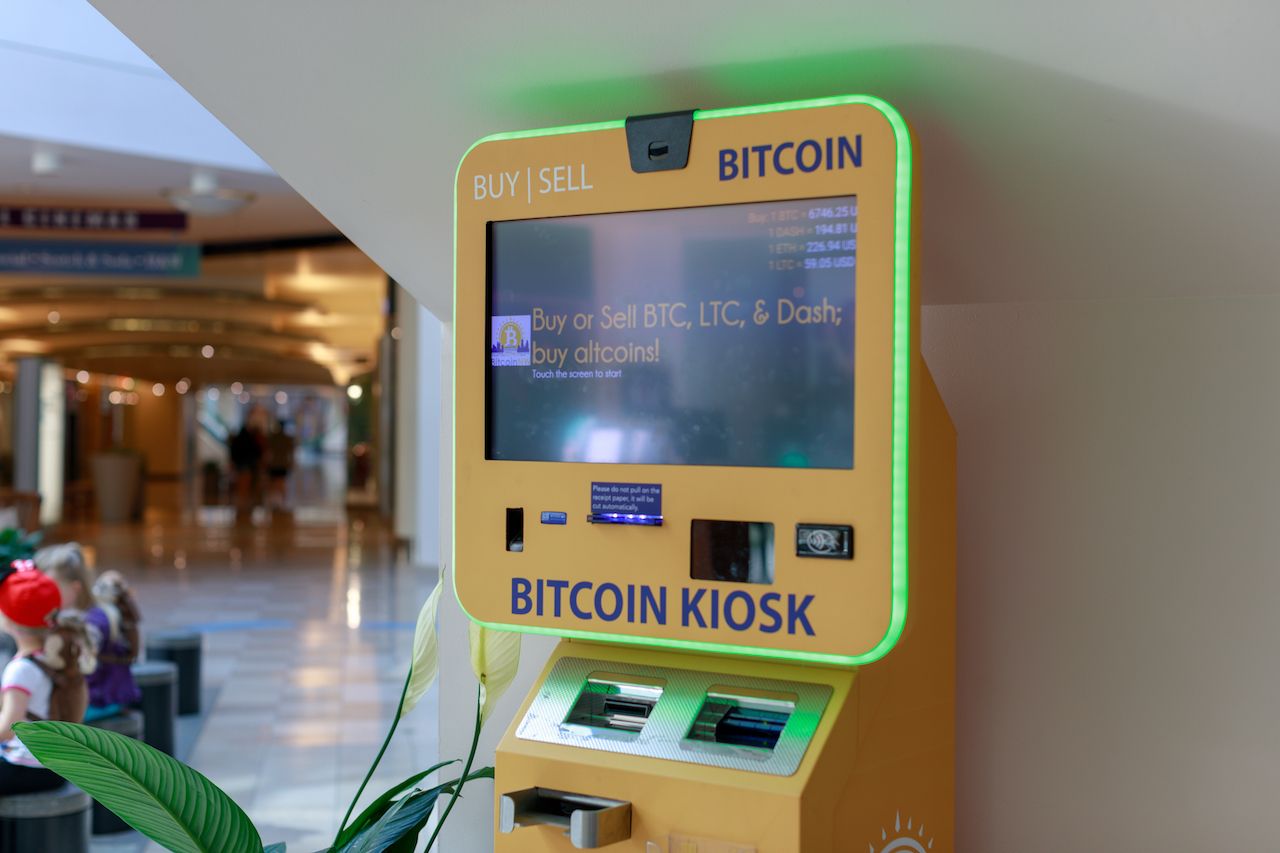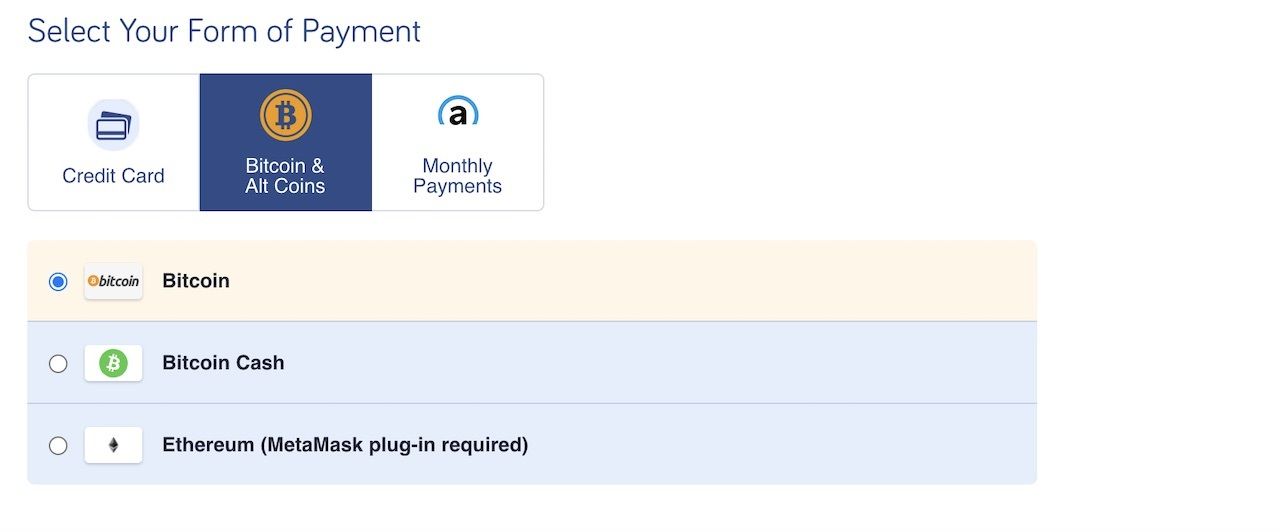Cryptocurrencies are officially mainstream, and you can now buy travel with bitcoin and other cryptocurrencies. Once a thought experiment belonging to the geekier corners of the internet, bitcoin and other cryptocurrencies are now being bought and traded by major banks, endorsed by celebrities, and are making headlines daily. The most ardent supporters even argue that cryptocurrency could completely revolutionize the global financial system, and while we’re not weighing in on that debate here, cryptocurrencies and the blockchain technology they’re built on are revolutionizing the way we make financial transactions and do things online.


Everything You Need to Know About Buying Travel With Bitcoin and Other Cryptocurrency
As a traveler, it’s at least worth understanding how cryptocurrency works and how you can and cannot use it to travel, and then making a decision on whether or not to participate. Part of this revolution is that now you can buy pretty much anything with cryptocurrency — including your next vacation. But getting into the crypto game can be confusing at first. Here, we break down what cryptocurrency is, how to get it, and everything you need to know to use it for travel.
What is crypto and where do you get it?

Photo: ARTYOORAN/Shutterstock
You’ve almost certainly heard of crypto by now, but you might still have questions on what exactly it is, how it works, and where you can buy it. Simply put, cryptocurrencies are a form of digital money that exists on the blockchain, a type of non-regulated digital database that keeps track of transactions. Cryptocurrencies are decentralized, which means that they are not controlled by a government or a bank. This makes them borderless — one reason they are attractive to many international travelers.
There are many ways to obtain cryptocurrencies, but for beginners, well-known exchanges like Coinbase offer the safest and most user-friendly crypto buying experience. Once you’ve purchased crypto, to store and use it safely, it’s best to transfer your crypto out of your account on the exchange and into a wallet. There are many different wallet options, from digital wallet apps like Mycelium to external hardware wallets you can plug in, like Trezor. Whatever your preference, what’s important is that you store your crypto in a place that is safe, secure, and gives you access to your private keys — the cryptographic bits that prove your ownership of your crypto and keep your funds safe from theft.
Let’s pause here to explain a bit further. Terms like “theft” and a bunch of intimidating jargon probably have you feeling more confused than confident at this point. But buying and holding onto crypto is actually quite easy. On Coinbase, you can select the specific cryptocurrency you want to buy (bitcoin and ethereum are the most popular right now), and purchase as much or as little of it as you like — similar to how you’d buy shares of stock on the stock market. You are buying a percentage of what’s called a “coin” — for example, as of the time of this writing one bitcoin costs just under $58,000. If you were to buy $100 worth, you’d have a fraction of one bitcoin in your wallet, much like you own a fraction of a company when you buy stock in it.
Again, to go back to the stock market analogy, the value of a bitcoin goes up and down on a daily basis, so while the value of your fraction changes, the size of that fraction remains the same.
How to use cryptocurrency to buy travel, and where you can use it

Photo: CheapAir
Once you have a wallet full of crypto, you’ll find that there are endless ways to spend it. As bitcoin and other cryptocurrencies have become more mainstream, crypto-friendly travel companies have sprung up to help people pay for travel arrangements with their wallets.
No matter how you like to travel or where you want to go, there is a way to pay for it with crypto. CheapAir has been accepting bitcoin for domestic and international flights since 2013, and we’ll use them as our breakdown example. You’re ready to buy travel with bitcoin, have $500 worth of bitcoin in your crypto wallet, and want to take a flight from Los Angeles to Chicago. A search on CheapAir lists the available flight options on your travel date, and you select your preferred flight. After working through the options to choose your flight, seats, and add-ons, you arrive at the payment screen. Here, you’ll see the option to pay with “Bitcoin & Alt Coins” (see above photo). Select this option, and the site will lead you through connecting your crypto wallet to complete a secure payment. This part is similar to paying for a product or service via PayPal or another online payment processor.
Crypto-curious travelers can also search for hotels and experiences from scuba diving excursions in Cyprus to walking tours of Tokyo on Travala, a crypto-friendly travel booking platform. If road-tripping is more your speed, you can even buy an RV with crypto at Camping World. The site Bitcoin Travel works as an online travel agency (OTA) for hotels, flights, and ground transportation options that you can pay for with bitcoin, effectively meaning the basic logistics of travel can almost entirely be paid for via crypto.
Even travel staples like Airbnb and Uber, which don’t officially accept cryptocurrencies as a payment method, can be often paid for in crypto. Applications like Fold work by turning bitcoin into gift cards that can be used to pay for Uber rides, coffee from Starbucks, or Airbnb stays. However, this option isn’t available everywhere you go. Governments around the world regulate cryptocurrencies differently, so what might be an option in one country isn’t always an option in the next.
What are crypto ATMs and how do they work?
Paying for travel expenses directly with crypto is getting easier, but there might be times when it makes more sense to pay with cash. For the crypto-committed traveler, crypto ATMs are one way to trade cryptocurrencies for local fiat (a.k.a. government-issued) denominations.
Crypto ATMs, many of which are bitcoin-only, work similarly to traditional ATMs. Users can either input cash and get bitcoin, or input their wallet information to trade their crypto for cash. There were over 12,000 bitcoin ATMs across the world at the end of 2020 — and that number is only growing as crypto becomes more mainstream.
Finding them can be a little tricky. User-populated map applications like CoinMap.org and CoinATMRadar.com can help travelers find crypto ATMs, as well as local businesses that accept crypto payments. However, the data can be sparse and occasionally unreliable, so travelers might want to budget time for the possibility of a wild goose chase. It’s part of the adventure.
If there aren’t a lot of crypto ATMs where you’re headed, don’t fret. Bitcoin was created to be peer-to-peer, meaning that people can trade with each other without the help of banks or other intermediaries. For the particularly intrepid and crypto-committed traveler, websites like Localbitcoins offer peer-to-peer, in-person exchanges where users can swap crypto for cash. And crypto groups on platforms like Meetup or Couchsurfing can help travelers find like-minded and knowledgeable locals that are more likely to have insight on their city’s crypto-friendly businesses and restaurants.
What are the potential downsides of paying for travel with crypto?

Photo: PixieMe/Shutterstock
While paying for travel with crypto is certainly possible, it won’t always be easy depending on your destination. And in some countries, it might be outright illegal or impossible. A handful of countries including Algeria, Bolivia, Morocco, Nepal, Pakistan, and Vietnam have completely banned all activities involving cryptocurrencies. Others, like Turkey and India, are currently in the midst of regulatory crackdowns on crypto.
Crypto is a volatile asset, both financially and legally, and travelers should be aware of the risks involved before deciding to plan a trip that revolves around crypto. A backup credit card or cold, hard cash is never a bad idea to have on hand in emergency situations.
Volatility can also lead to price swings that could make your travel plans much more — or, if you’re lucky — much less expensive. This is characteristic of the crypto market and travelers familiar with cryptocurrencies will not be surprised by price swings, but newcomers should prepare themselves for the possibility of price whiplash.
Crypto users should also take cautions to protect their wallets and other personal information while traveling by using two-factor authentication, encryption, and good digital hygiene.
What are the benefits of paying for travel with crypto?
More and more crypto companies are entering the travel industry, but there are still gaps that require a bit of creativity to bridge. It would certainly be easier to whip out your Mastercard and move on, so why pay for travel with crypto?
If you’re a crypto enthusiast and a believer in bitcoin, paying for things with cryptocurrencies helps further mainstream adoption by creating a demand for global crypto merchant solutions. Additionally, spending crypto in places where many people are unbanked and the currency is subject to hyperinflation can be beneficial to the local economy because it inputs consumption without adding more cash to mix.
Aside from the idealistic and altruistic reasons to spend crypto when traveling, it can also help travelers avoid foreign transaction fees (although you’ll still have to deal with pesky crypto transaction fees which can, admittedly, sometimes be worse) and unfavorable foreign exchange rates. Traveling without cash also makes some people feel safer from theft, although crypto travelers should still be wary of losing their phones or hardware wallets. Ultimately, paying for travel with crypto is an adventure that can make your travels more meaningful, enjoyable, and exciting. It’s a perfect option for tech-savvy travelers that are up for a bit of a challenge, and who see that challenge as part of the fun.